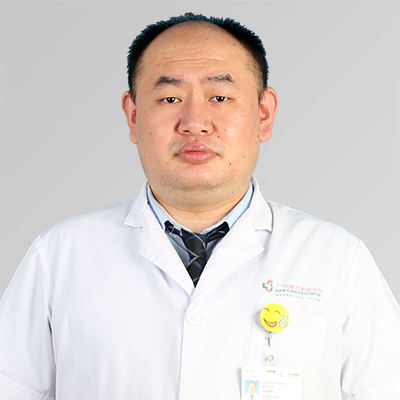At 11 p.m., the lights at Guangzhou Fuda Cancer Hospital were still blazing. A desperate race against death was unfolding—an Indonesian patient suffered a sudden massive hemorrhage after a spindle cell sarcoma in the right neck invaded the carotid artery and ruptured. In an instant, blood spurted out violently. The patient lost nearly 1,000 ml of blood.
A silent life alarm was triggered. In the critical moment, Dr. Jia Xintong and the on-duty nurses became the first line of defense. Without hesitation, they rushed forward and pressed firmly on the bleeding site with their bare hands. That single press lasted one full hour. Every second was a countdown to life; every second was held up by unwavering determination and a sense of sacred duty.
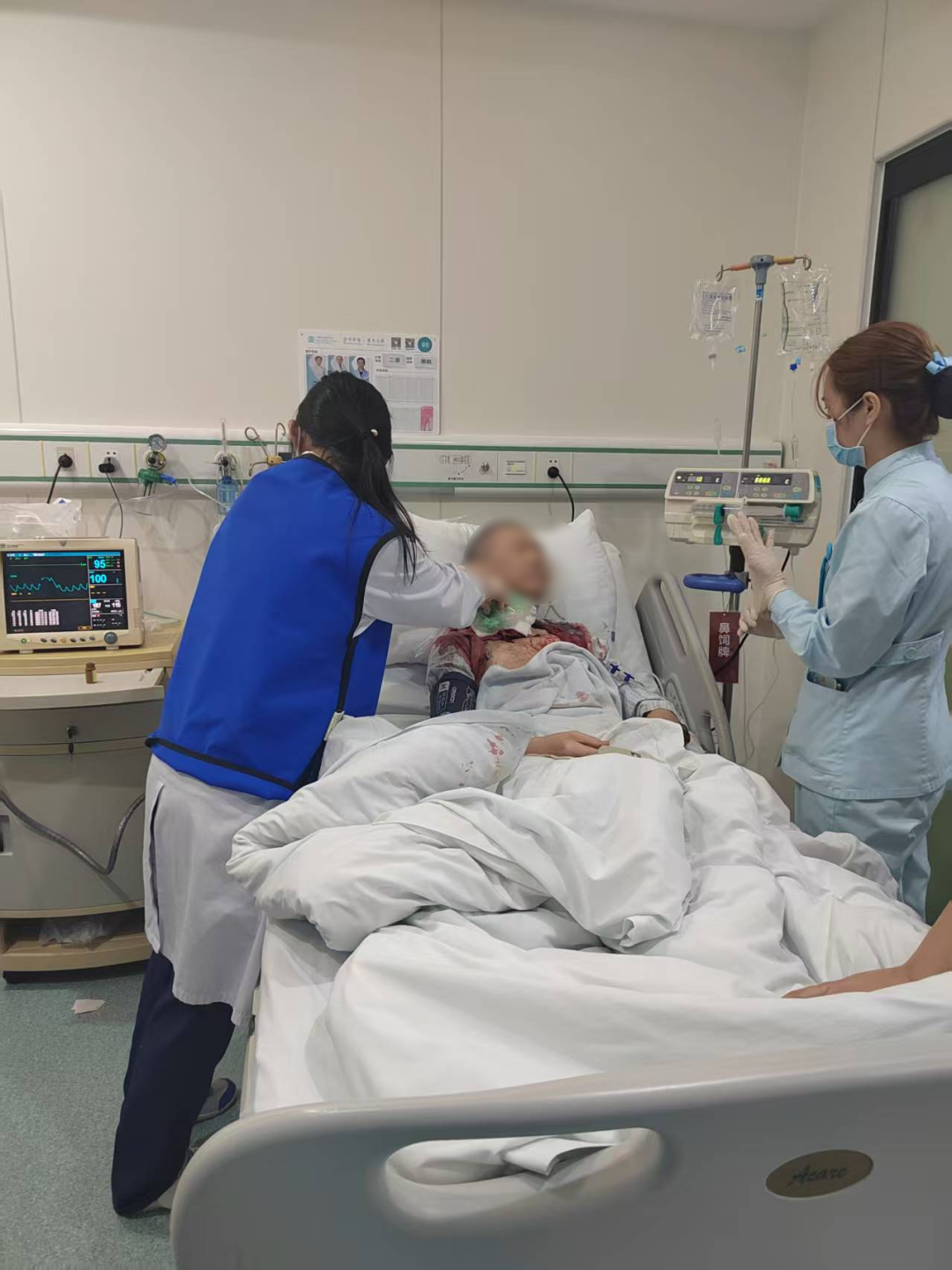
Life-saving efforts could not wait. Relevant departments mobilized instantly and cooperated with precision. Interventional specialist Director Yang Qingfeng and Dr. Qiu Ningning rushed to the hospital from home in the middle of the night to begin the first lifesaving relay—performing emergency embolization to stop the bleeding. In the stillness of the early morning, their expertise and persistence guarded the first glimmer of hope.
The lights in the blood bank also stayed on through the night. Thanks to the blood reserves from the hospital’s fourth voluntary staff donation drive this year, the clinical supply remained secure.
When a specific blood type ran critically low, a driver from the service department volunteered immediately:
“I know the route well. I’ll take it!”
Gripping the steering wheel, he raced through the dark city to deliver the urgently needed blood to the operating floor at top speed. This invisible lifeline was reinforced by every ordinary person making extraordinary efforts.
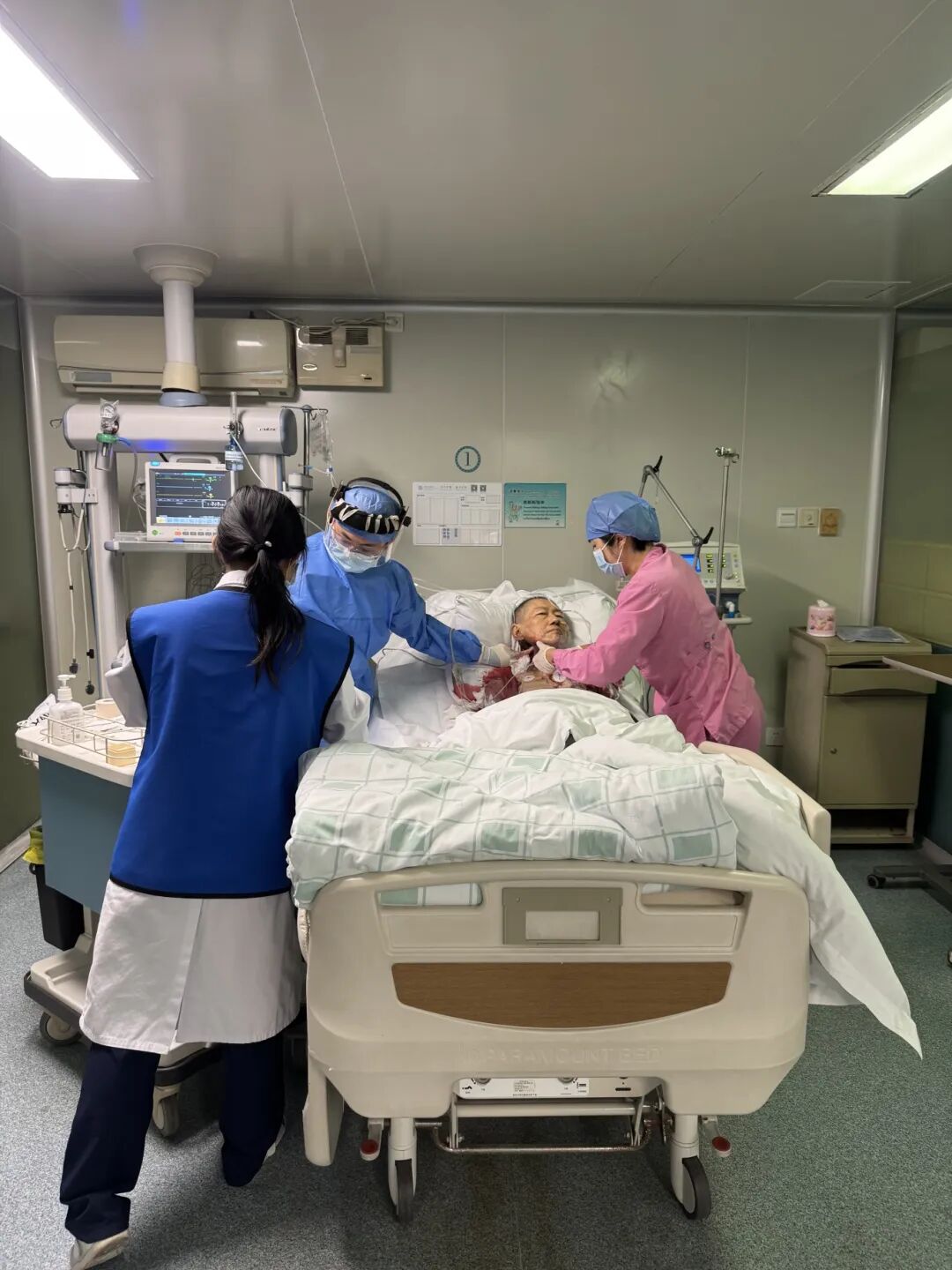
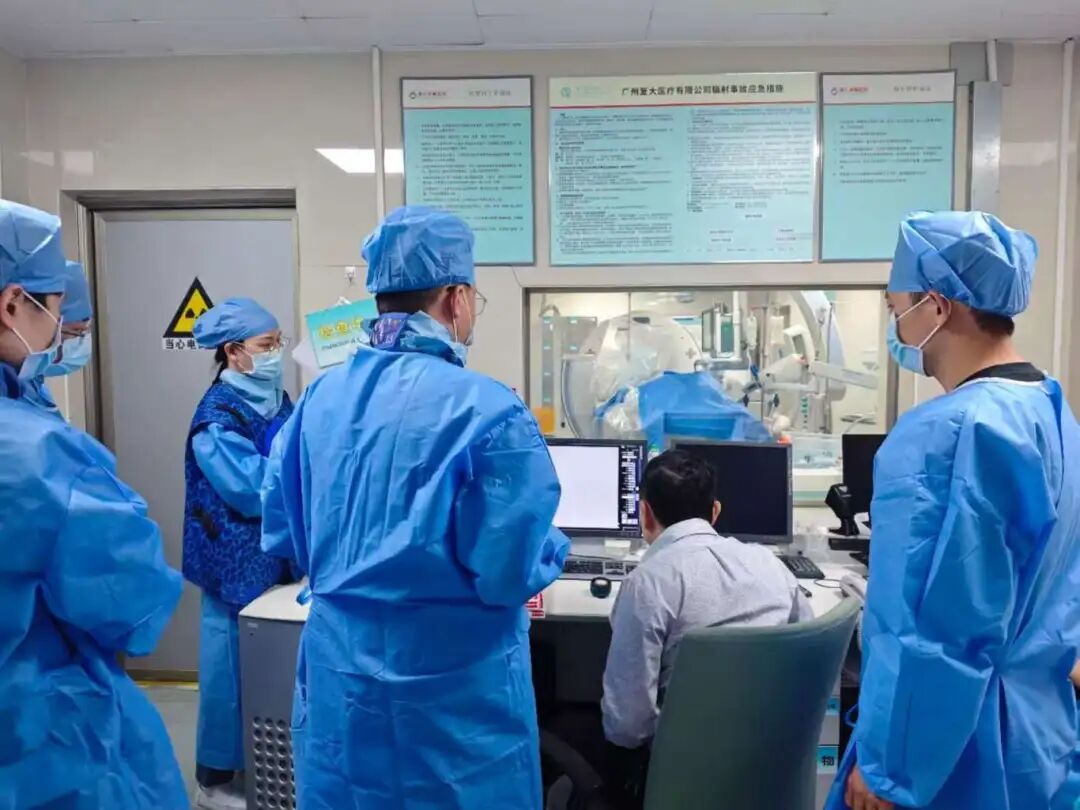
Meanwhile, Dr. Liu Zhengping and the team in Indonesia stayed awake with their phones in hand, anxiously following the situation in Guangzhou. Cross-border updates, translated in real time, connected the care and expertise of both countries.
After an urgent multidisciplinary evaluation led by President Niu Lizhi, Prof. Zeng Zongyuan, Director Xu Jiongyuan, and external experts, the team decided to implant a covered stent. Like tightly interlocking gears, all departments activated emergency protocols with flawless coordination, opening a seamless green channel for the patient.
Yet at the moment hope appeared, a slight jolt during bed transfer triggered another catastrophic hemorrhage. In the split second between life and death, Dr. Wang Jie Fu pressed down on the wound with the grip of an iron clamp.
In a storm of gushing blood, he remained motionless—a human hemostatic forceps—buying the surgical team invaluable time. After more than three hours of continuous manual compression, the surgery succeeded, and the covered stent was finally implanted.
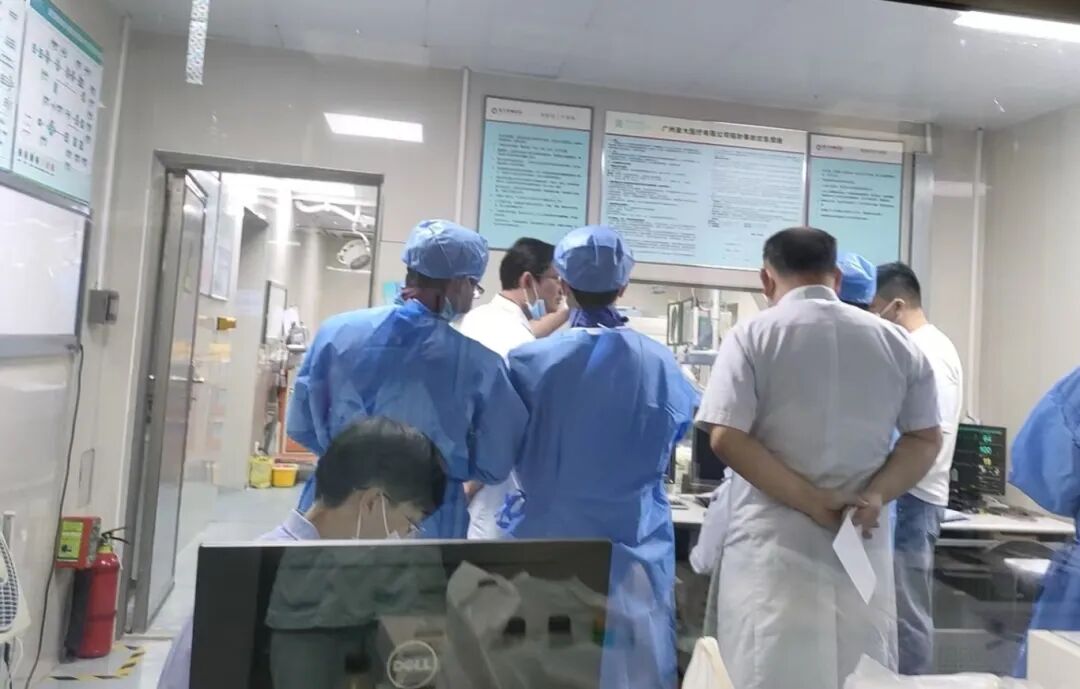
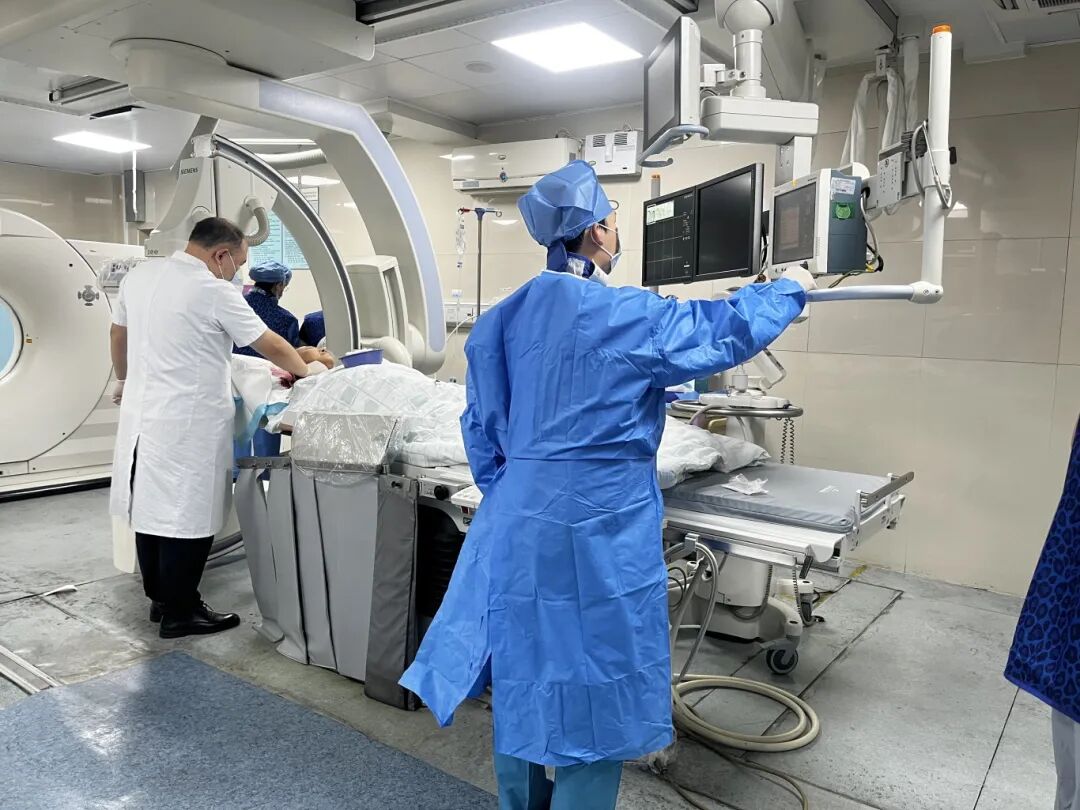
An 18-Hour Battle Across Two Countries
When the life-threatening crisis was finally resolved, hearts across Guangzhou and Indonesia could at last relax. Behind this 18-hour rescue was the seamless coordination of the Interventional Department, ICU, Anesthesia Department, Procurement, and the translation team—an inspiring portrait of cross-department unity and courage.
And this was not an isolated case. Just last month, the same team carried out another nerve-wracking rescue: An Indonesian patient with an oral tumor suffered sudden massive bleeding, and all conventional hemostatic measures failed. In the moment of crisis, Dr. Wang Jie Fu once again stepped forward, manually pressing the bleeding point for more than two hours, creating a critical window for the interventional and anesthesia teams. After 45 minutes of coordinated effort, they successfully embolized the vessel and claimed another victory.
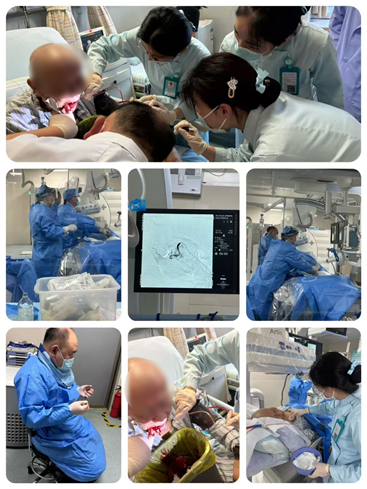
On This Battlefield Without Smoke and beneath the white coats lie not only superb medical skills, but shields of flesh and blood that protect life. Not only duty, but compassion—the resolve to guard life with life.
